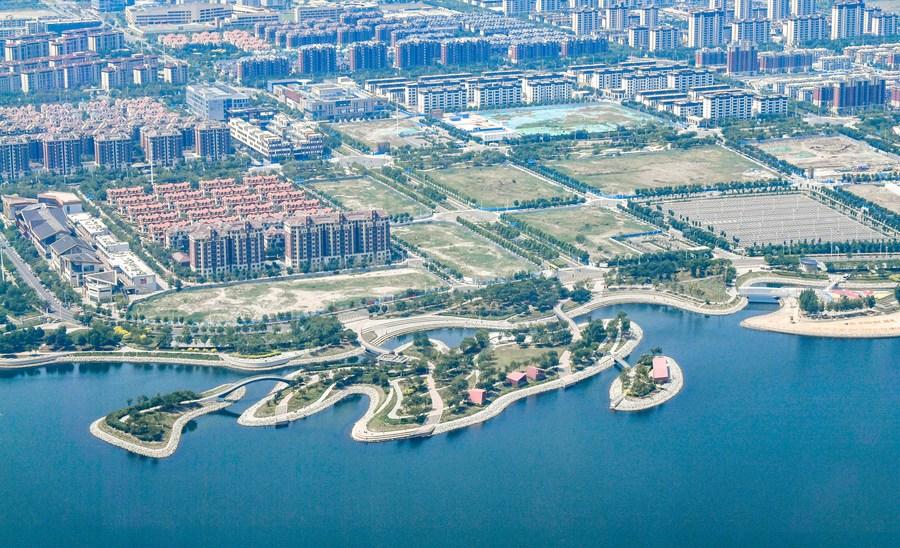
 0 Comment(s)
0 Comment(s) Print
Print E-mail Xinhua, September 2, 2024
E-mail Xinhua, September 2, 2024

This aerial view taken on June 16, 2023 shows a view of the Sino-Singapore Tianjin Eco-City in north China's Tianjin Municipality. [Photo/Xinhua]
China-Singapore Tianjin Eco-City, the country's first national green development demonstration zone, has established new construction goals aimed at exploring pathways and providing models to accelerate the comprehensive green transformation of economic and social development across the nation.
A recent implementation plan issued by the National Development and Reform Commission outlines the goals for the eco-city to evolve into a national green development demonstration zone, emphasizing green, low-carbon and high-quality development.
The plan focuses on high-value-added sub-industries and aims to create a world-class business environment. It proposes 20 key indicators in three areas, to achieve internationally leading levels in major green development indicators by 2035.
The plan also specifies 29 detailed tasks across six categories and proposes organizational measures to ensure effective implementation.
The new construction goals highlight four main areas of innovation: accelerating the growth of green industries, enhancing the supply of scientific and technological innovation, addressing key challenges, and improving systems and mechanisms.
Analysts have noted that these goals are closely aligned with deepening reform of the ecological conservation system proposed at the third plenary session of the 20th Communist Party of China Central Committee.
China-Singapore Tianjin Eco-City, the world's first eco-city co-developed by China and Singapore, began construction by the Bohai Sea in 2008. In 2013, the State Council approved the establishment of the national green development demonstration zone within the eco-city, making it the first of its kind approved by the Chinese government.
The eco-city has demonstrated a "reverse urban heat island effect" for two consecutive years. Data from the local meteorological bureau show that from June to July this year, the intensity of the urban heat island effect in the eco-city was minus 0.3 degrees Celsius, a decrease from the same period last year, indicating a potential solution to the global occurrence of extreme high temperatures.
Zhu Liyang, president of the China Association of Circular Economy, stated that the new construction goals reflect the high expectations of the Chinese government for the eco-city's future development and underscore its national significance and international vision in green development.
In 2020, China announced its commitment to peak carbon dioxide emissions by 2030 and achieve carbon neutrality by 2060. Recently, China has introduced several new policies to further promote green transformation.
Wang Guoliang, director of the China-Singapore Tianjin Eco-City administrative committee, said that building on existing advanced experience, the eco-city will continue to explore new and improved pathways, contributing valuable insights to the comprehensive green transformation of economic and social development in China and the world.
Go to Forum >>0 Comment(s)